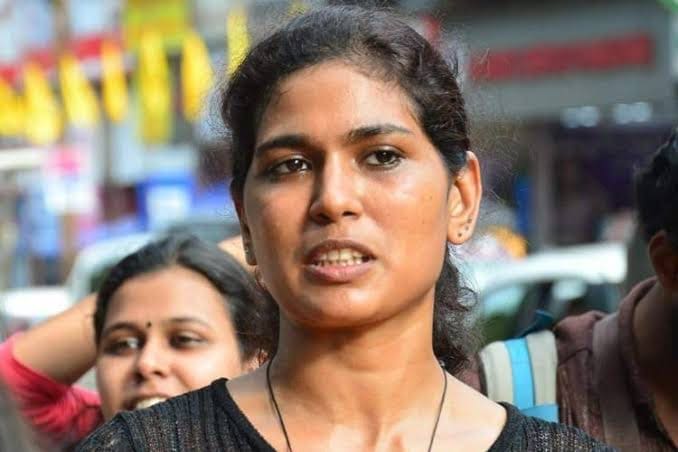
The Kerala High Court on Monday discharged Rehana Fathima, a women’s rights activist, in a POCSO case, saying that “the right of a woman to make autonomous decisions about her body is at the very core of her fundamental right to equality and privacy.”
Rehana was facing charges under various provisions of the POCSO, Juvenile Justice and the Information Technology (IT) Acts for circulating a video in which she was seen posing semi-nude for her minor children, allowing them to paint on her body.
“The right of a woman to make autonomous decisions about her body is at the very core of her fundamental right to equality and privacy. It also falls within the realm of personal liberty guaranteed by Article 21 of the Constitution,” said Justice Kauser Edappagath.
The court said it was not possible to anyone to infer that the children of 33-year-old activist were used for any real or simulated sexual acts and that too for sexual gratification.
“There is nothing to show that the children were used for pornography. There is no hint of sexuality in the video. Painting on the naked upper body of a person, whether a man or a woman, cannot be stated to be a sexually explicit act,” the court said.
The court said that “nudity and obscenity are not always synonymous.”
“It is wrong to classify nudity as essentially obscene or even indecent or immoral,” it further said.
There were murals, statues and art of deities in the semi-nude in ancient temples and various public spaces all over the country and these are considered as “holy,” observed the court.
Justice Edappagath further said that nude display of the upper body of men is never considered obscene or indecent and is not sexualised, but “a female body is not treated in the same way,” according to PTI report.
“Every individual is entitled to the autonomy of his/her body – this is not selective on gender. But we often find this right is diluted or denied to the fairer sex…The women are bullied, discriminated against, isolated, and prosecuted for making choices about their bodies and lives,” the court said.
“Nudity should not be tied to sex. The mere sight of the naked upper body of the woman should not be deemed to be sexual by default. So also, the depiction of the naked body of a woman cannot per se be termed to be obscene, indecent, or sexually explicit,” the court said.
The court went on to say: “Morality and criminality are not coextensive. What is considered as morally wrong is not necessarily legally wrong.”
The court pointed out that adultery, consensual same-sex relations and live-in relationships are considered immoral by many, but they are legal acts.
“Society’s morality and some people’s sentiments cannot be the reason for instituting a crime and prosecuting a person. An action is permissible if it does not violate any of the laws of the land,” it further said.
It went on to say: “A mother-child relationship is one of the earth’s most solemn and pious relationships. There is no bond stronger and more sincere than the one between a mother and her child. No doubt, the prosecution of the petitioner (Fathima) will have torture and adverse effect on the children. Hence, in the best interest of the victims also, the prosecution cannot be allowed to be continued.”
The order came on Rehana’s appeal against a trial court decision dismissing her plea to be discharged from the case, PTI reported.
In her appeal, Rehana had asserted that the body painting was meant as a political statement against the default view of society that the naked upper body of the female is sexualised in all contexts, whereas the naked male upper body is not treated to this default sexualisation.



